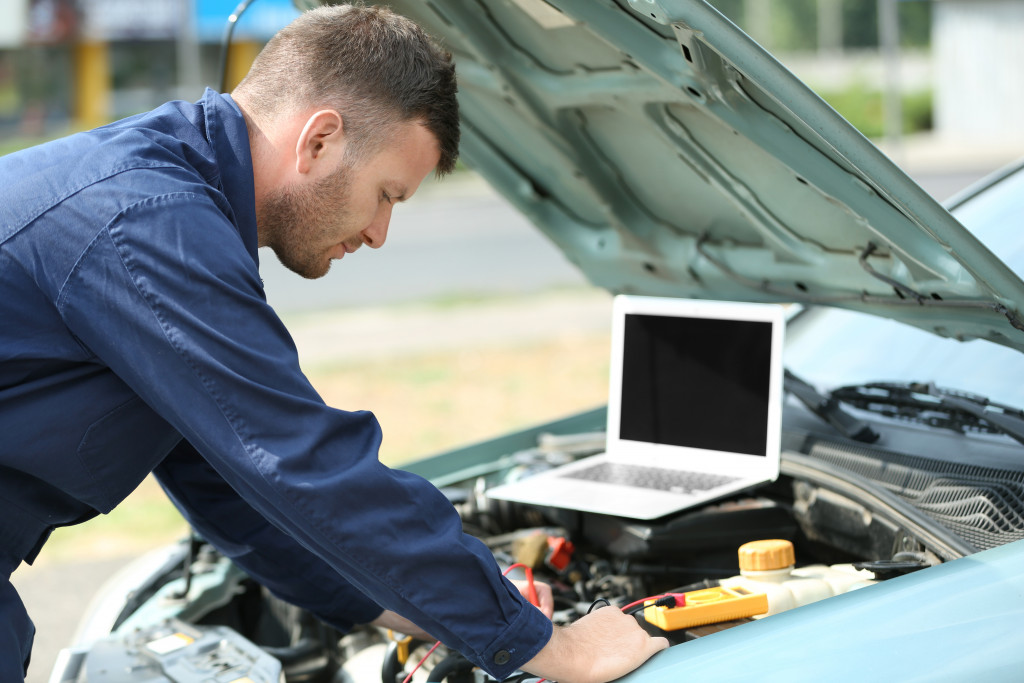It’s no secret that the key to keeping your vehicle running for as long as possible is to run preventive maintenance checks from time to time. How often you run these preventive maintenance checks will, of course, depend on the type of car you drive, what sort of road conditions you usually drive on and the season.
Of course, it’s always best to take your car to the shop for the best kind of care possible, especially if you find a specific issue: if there’s an air-conditioning issue, to take it to a car ac service specialist; if it’s the engine, take it to a mechanic, etc.
But the more preventive maintenance checks you make on your car, the less likely it is for you to take your car to a shop anyway.
Here are some basic parts of your car that you should be checking every few weeks, every few months and once a year:
Car Check-Ups You Should Do: Every Week
Check the following aspects of your car every week or so. You could do it every week or every couple of weeks.
Tire Pressure and Tread Depth
Well-maintained tires are crucial to both safety and fuel efficiency. Make it a habit to visually inspect your tires every few days or at least once a week. Check your tire’s pressure regularly with a gauge, especially if you’re going on a long road trip or if you’ll be carrying heavy loads in the coming days. Use the penny method to check your tread depth at least once a week or every two weeks.
Headlights, Turn Signals and Brake Lights
Check your headlights every week or so if they’re functioning properly by aiming them at a blank wall to see if both sides are shining the same amount and are calibrated. While parked, step on your brakes and check to see if your brake lights are working properly as well.
Car Wax
Your car wax does more than keep your car looking shiny and cool; it also helps make sure that the actual body of your car is free of rust and corrosion. Inspect your car every week or so to see if there are spots you need to wax, or if the entire car needs a wax job.
Car Check-ups You Should Do: Every Month

Oil and Coolant Levels
Check your oil and coolant levels every couple of weeks, perhaps even once a month. It’s also a great idea to check your oil and coolant levels prior to any long road trips. In general, try to check this before you start your engine so that the engine is cool enough to touch.
Air Filter
The air filter is what helps the engine regulate the air flow that enters it while keeping away harmful debris and other particulate matter. A well-placed and proper air filter can help increase the lifespan of your engine while improving your fuel efficiency.
Oil and Oil Filter
The importance of motor oil in a car cannot be understated: it lubricates moving parts, keeps debris away from the sensitive parts of your engine, it helps keep your engine cool, and so on and so forth. Check your oil and oil filter every 3 months or so, or every 3000 miles, whichever comes first. Newer vehicles will often require less oil changes, so you’ll need to check your owner’s manual for the manufacturer’s recommendations.
Car Check-ups You Should Do: Every Season
Transmission Fluid
Transmission fluid is much like your engine oil in that it’s crucial in keeping everything lubricated and clean. Fortunately, it doesn’t need changing as often as motor oil does, but it’s always best to check it every few months or when the season changes.
Shocks and Struts
The shocks and struts of a car is what helps the vehicle control impact and rebound whenever it passes through different types of road conditions. All vehicles have this and in general it’s best to have them inspected by a certified mechanic every few months or every 50,000 miles, whichever comes first.
Tire Differentials
The front and rear differentials are the devices that take the torque from the engine and sends it to either the front tires and the rear tires. For front-wheel drive vehicles, there is only a front differential, while in rear-wheel drive vehicles, there is only a rear differential. For four-wheel and all-wheel drive vehicles, however, there will be both a front and rear differential, with some vehicles (usually all-wheel drive vehicles) even having a central differential. As much as possible, have a professional check and change the differential fluid every season or so.




